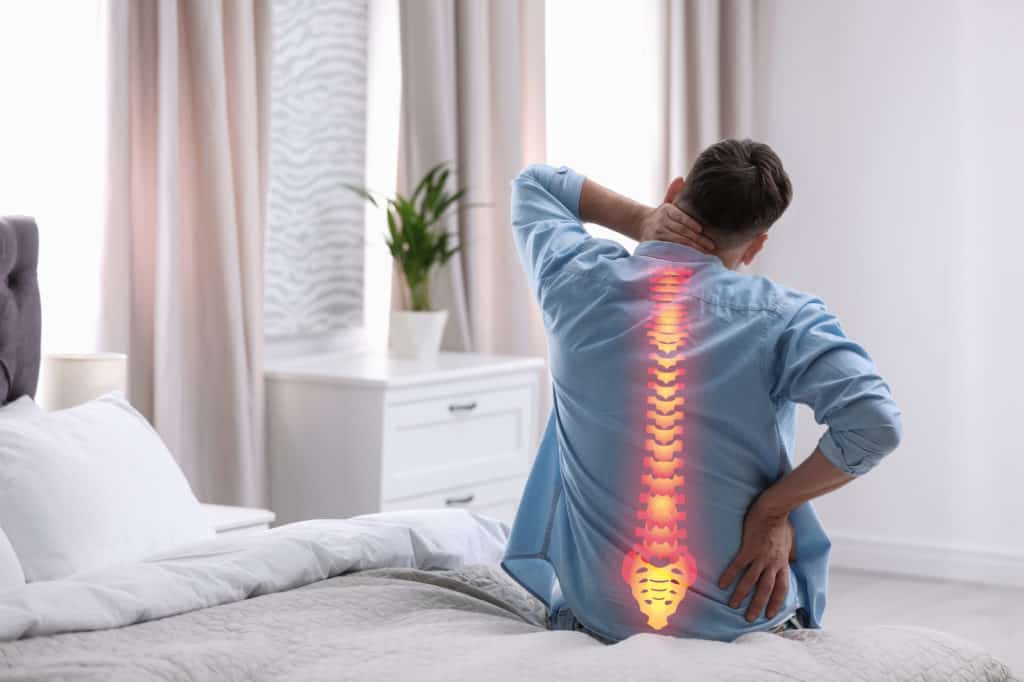
Is your lower back too sore for sleep?
We can help. But first, we need to know what type of lower back pain it is and what’s causing it.
There are two main types of lower back pain: acute and chronic.
If you have acute lower back pain, it comes on suddenly – usually because of an accident or injury – and gradually disappears after a few days or weeks.
Once acute lower back pain goes away, your mobility usually returns to normal. Chronic lower back pain can last three months or even longer, and the pain can occur without any apparent cause or injury.
However, in some cases, acute pain from an accident or injury can become chronic. Studies show that about 20% of such cases go from acute to chronic.
Your lower back is made up of a series of bones, muscles, ligaments, tendons, and connective tissues.
There are also five vertebrae (sections of the spinal column) in the lumbar spine (the lower part, i.e., your lower back) that are kept in position by spinal disks and ligaments.
Likewise, the muscles in your lower back also provide support and attach to the spine with tendons.
In addition, various nerves pass through the spinal cord in this area, which carry signals to and from the brain.
Your lower back plays a crucial role in mobility and stability, supporting most of your body weight. It’s also vital for various movements, like twisting and turning.
So, considering the role the lower back plays in our daily activities and the complexity of the structures inside the lumbar spine, it's easy to understand why it can become a hotspot for pain and discomfort.
Most people experience lower back pain at some point if their life. It's also one of the most common reasons people seek medical assistance.
When you have lower back pain, it can be short term – and disappear as quickly as it arrived, or chronic, remaining for many months and sometimes even years. The pain can also range from mild to severe.
However, we also know from the many patients we treat with lower back pain that it can severely affect your quality of life and disrupt sleep when it is intense.
If you suffer from lower back pain, it’s worth noting that there is a cyclical connection between pain and sleep because a lack of sleep can increase pain, and severe pain can disrupt sleep.
Once established, it’s a tough cycle to break. But it is possible. A mattress with poor lumbar support or sleeping in an awkward position can also worsen lower back pain and exacerbate the situation.
So, getting proper sleep should be one of your top priorities if you have lower back pain because it can not only help to reduce your back pain symptoms but also help to prevent it and lead to quicker recovery from injury.
Easier said than done, though, right? We get it. Read on to find out what you can do to improve sleep when you have lower back pain.
More Articles From Apex
Can Constipation Cause Back Pain?
What Is Causing Pain In My Shoulder?
Kicking the Pain of Plantar Fasciitis
What Is The Connection Between Sleep And Lower Back Pain?
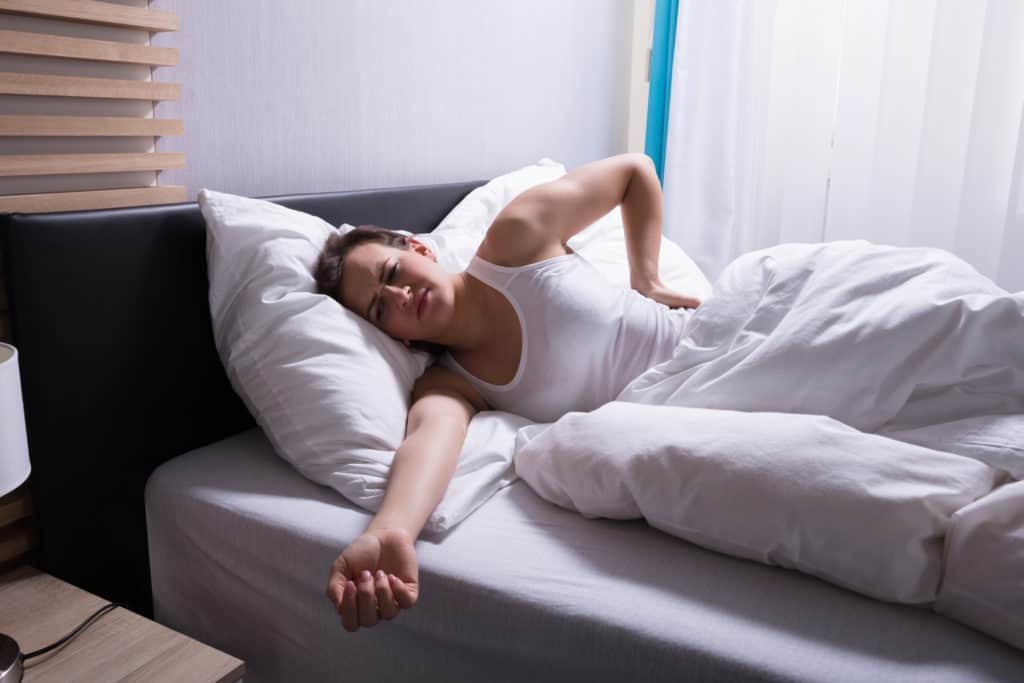
Many scientific studies have proven the link between poor sleep and lower back pain and shown how they're interrelated.
But we also see this link daily in the Apex Clinic when we treat patients with lower back pain, and they tell us how difficult they find it to sleep.
Some of our patients tell us that their lower back pain intensifies during the morning hours, disrupting their sleep and waking them up long before their alarm.
But in other cases, insomnia and chronic lack of sleep come first, before the lower back pain.
That's because if you already suffer from sleep issues, you are at greater risk of experiencing chronic pain, and the pain intensifies because of a lack of sleep.
Getting inadequate sleep can also delay healing from injuries to the lower back and directly impact mood and sensitivity to pain.
But what can you do about it?
How Your Sleep Position Affects Lower Back Pain
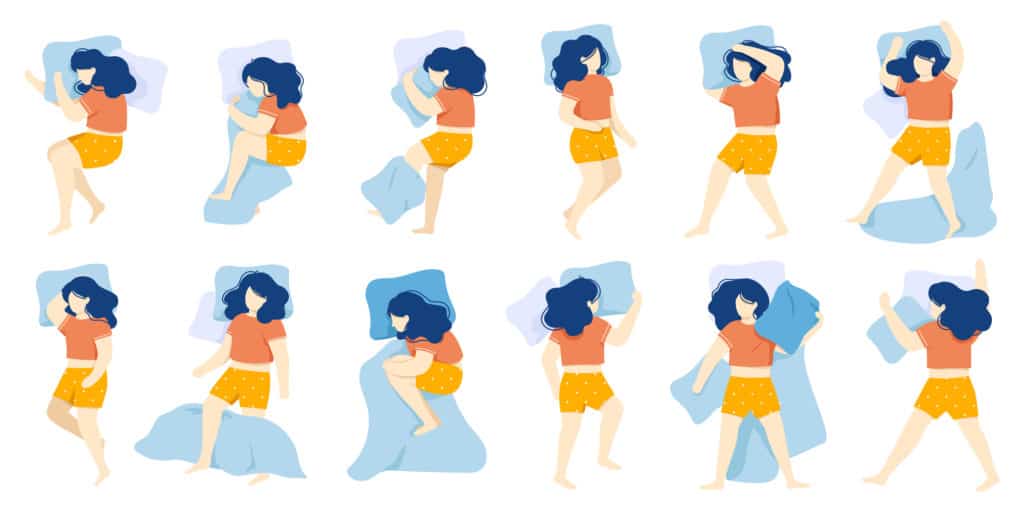
If you wake up in the morning with worse pain, it probably won't surprise you to hear that there is a further link between lower back pain and your position. Why? Because it directly affects the alignment of your spinal cord.
While we tend to primarily associate posture with standing and sitting, it is equally important to maintain “good posture” when lying down.
Any position you sleep in that makes you contort or twist causes pressure to build up on your spinal cord, which leads to stiffness and soreness the next morning that continues or worsens throughout the day.
What Is The Ideal Sleep Position For Lower Back Pain?
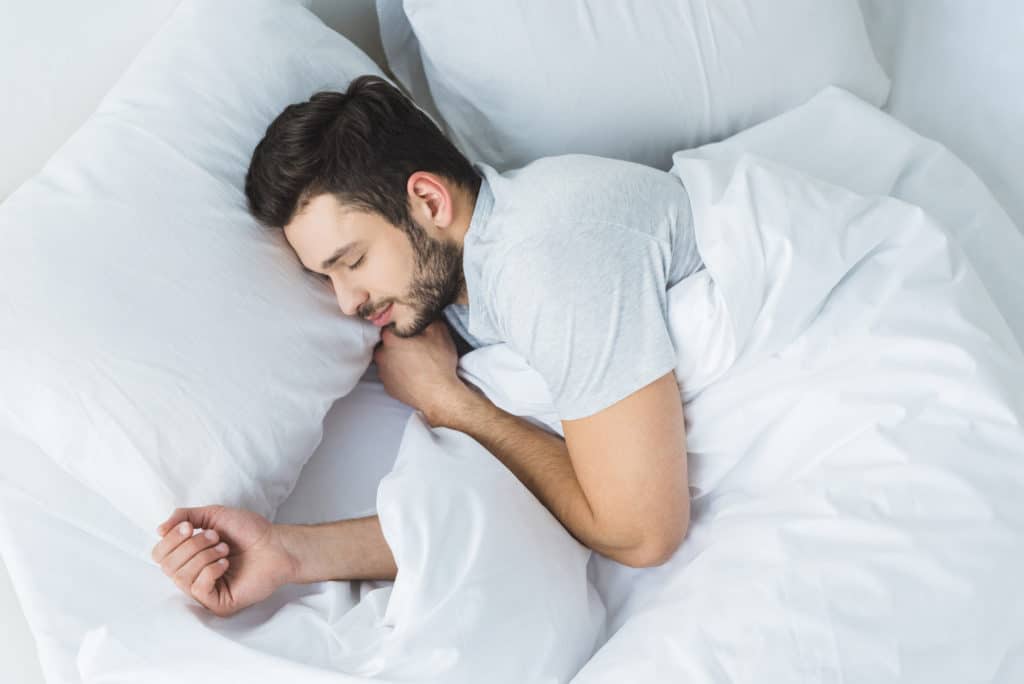
Are you a side sleeper, stomach sleeper, or back sleeper?
When you have lower back pain, the ideal position to sleep in is on your side with your knees partially bent.
The bent knees relieve pressure on your spine and improve weight distribution between different parts and sides of the body.
In addition, some people find that placing a small pillow between the knees makes this position more comfortable and even more supportive.
If you're usually a stomach or back sleeper, you may initially find it challenging to adopt this new position.
But as sleep is so important, if you must sleep on your stomach, use a thin pillow and place another pillow under the abdomen and hips for extra support.
If you can't sleep unless you're on your back, then you can decrease the pressure on your lower back by placing a pillow underneath your back and legs or your knees to support the natural curvature of your spine and relieve the stress on the lower lumbar region.
The Link Between Your Mattress And Lower Back Pain
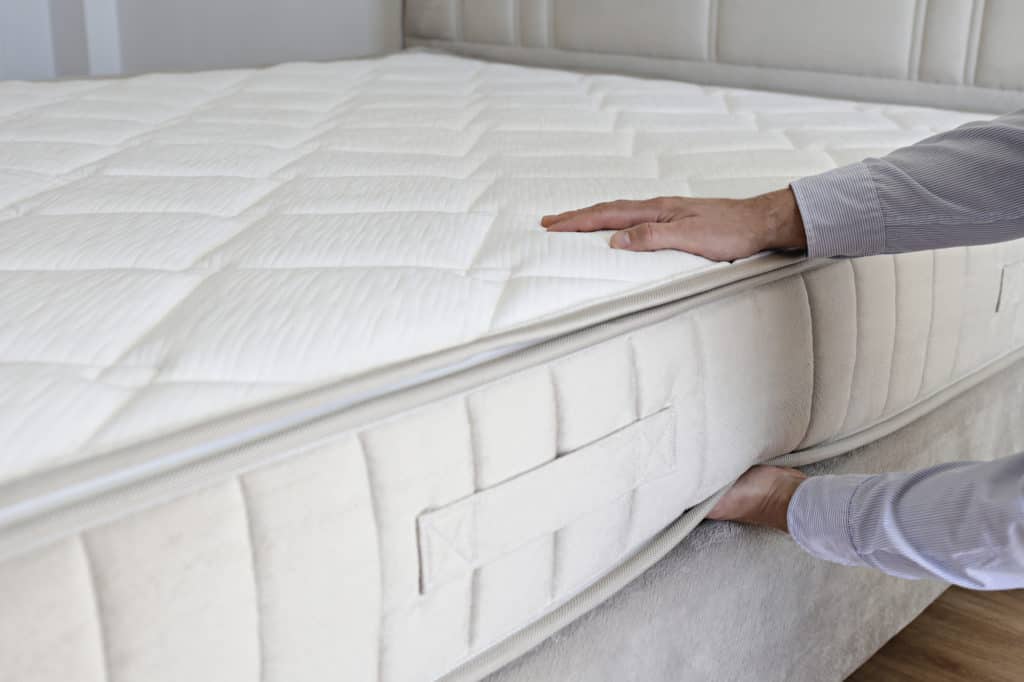
A good mattress can be a sizeable investment. But that's what a good mattress is, an investment in the future health of your back and spine.
Your mattress provides support for your lower back every night while you sleep. It is critical in reducing and preventing pain in the lower back, neck, and body.
If your mattress sags too much, your spine cannot align in its natural, most comfortable position.
Studies show that a medium-firm mattress is the best and most effective type to prevent lower back pain.
However, the exact type of mattress for you may differ depending on your weight, sleeping position, and personal comfort levels.
Having a restful night's sleep is critical to recovering from lower back pain and preventing it from returning, so don't get too hung up on the specifics.
But if you haven't changed your mattress for decades, now might be a good time – to improve your sleep.
How To Sleep Better When You Have Lower Back Pain
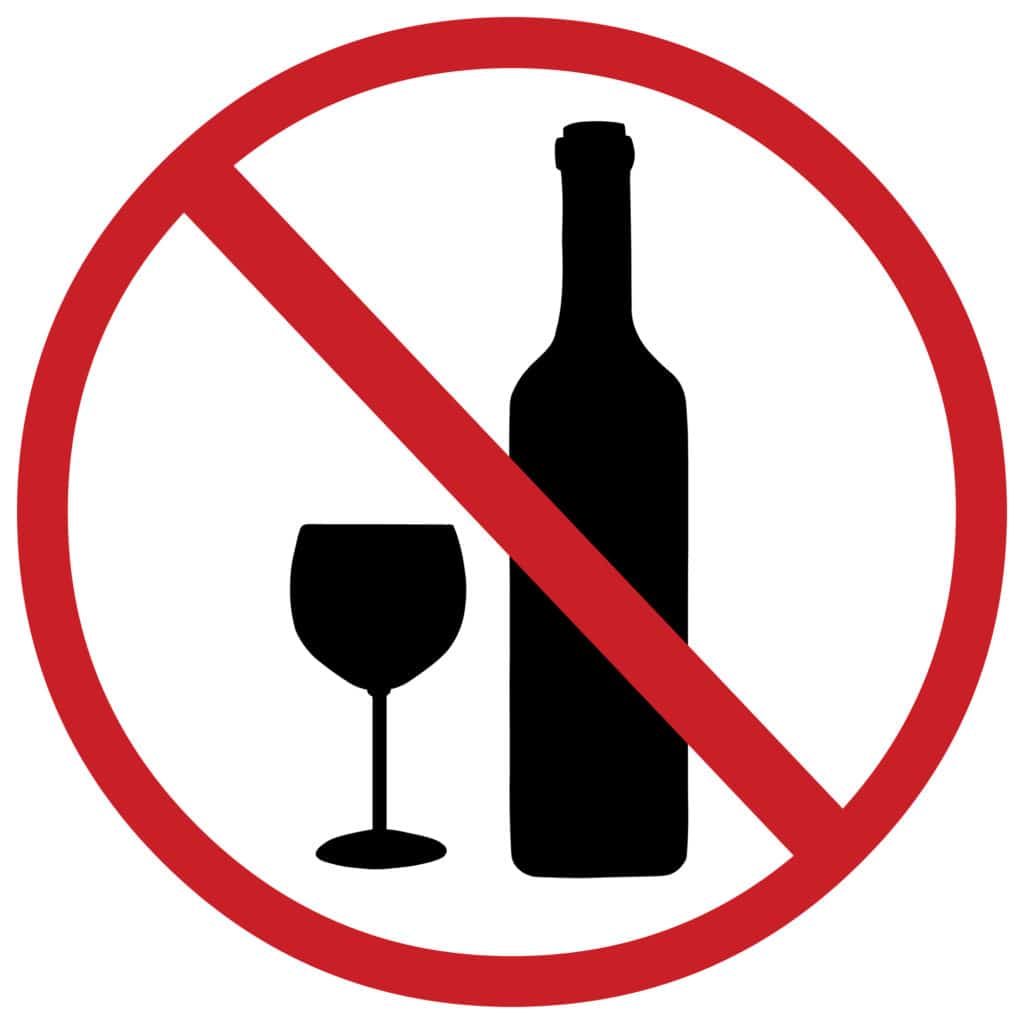
So, we know that sleep is super-important for back pain. But what can you do to improve your sleep when you suffer from lower back pain?
Here are a few of our favorite tips to help you get a better night’s sleep:
Select a sleeping position that offers good support to the lower back area.
Of course, sleeping on your side is the best choice, but you must also ensure that your spinal cord maintains its natural alignment by using extra pillows where necessary.
Also, make sure you’re not twisting your body too much.
Cut down on caffeine consumption and alcohol.
Caffeine makes it more difficult to sleep as it works like a stimulant and can keep you awake at night, especially if you drink too late in the day.
Same with alcohol. While it might make you drowsy initially, it negatively impacts sleep quality.
Try yoga, a hot bath or shower, or other relaxation techniques like meditation or massage.
These can be particularly beneficial in the evening as part of a daily sleep routine that begins at a specific time every night.
They can also help to reduce pain. In addition, doing these things at the same time every night helps improve your circadian rhythm and signals to your body and brain that it's time to sleep.
Cut down on distractions when it is time to sleep.
Watching television late into the night is one of the leading causes of poor sleep. Likewise, using a mobile phone or laptop late into the night will also affect sleep quality.
Try to minimize light and noise in your bedroom overnight, too. The darker, the better. Use earplugs or a sleep mask.
Also, adjust your bedroom temperature to an ambient level that enables you to sleep comfortably throughout the night without waking up because you’re too hot or too cold.
If you're having trouble sleeping, don't hesitate to pick up the phone now and see how we can help you.


